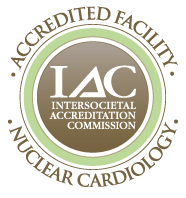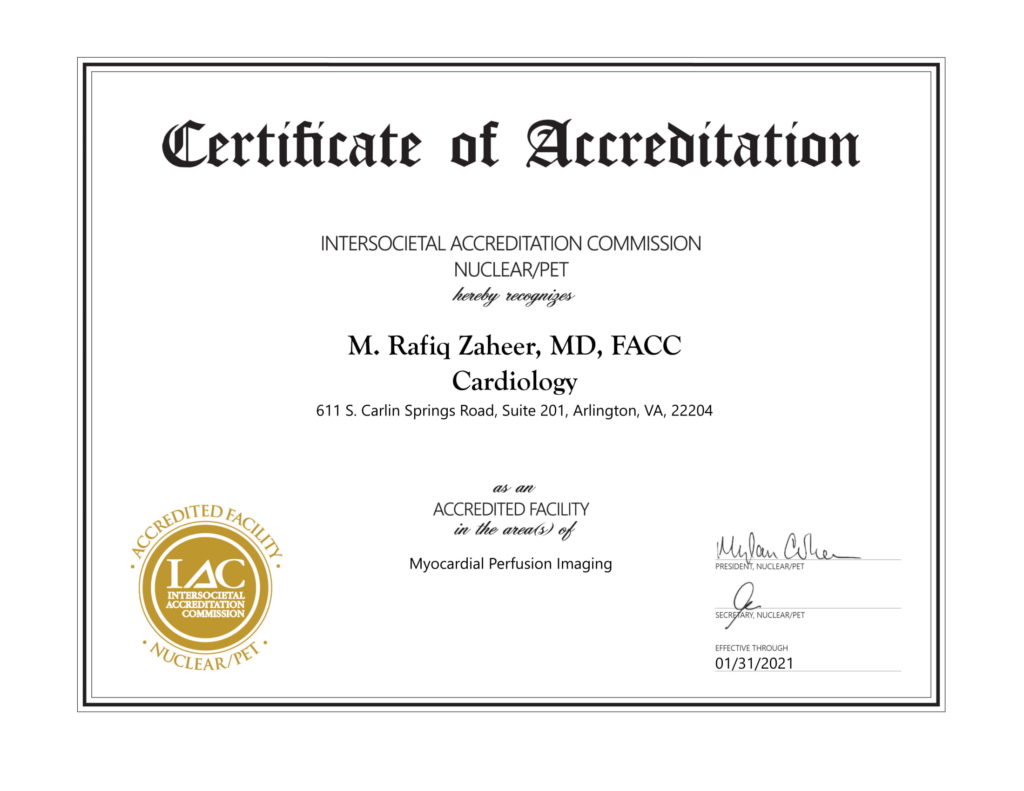Nuclear Stress Test




What is a Nuclear Stress Test?
Nuclear stress testing aka myocardial perfusion stress test is a way for doctors to check how healthy your heart is. A nuclear heart test is an imaging test that can show:
- How much blood flows to your heart muscle when the heart pumps very fast.
- How well your heart pumps blood to the rest of your body
Why might my doctor order a nuclear stress test?
Your doctor might order a nuclear heart test or a nuclear stress test to:
- Check if your heart muscle is getting enough blood
- Look for certain heart conditions or check on a known heart condition
- Check your heart after a heart attack or heart surgery
- See how well your heart pumps blood to the rest of your body
How do I prepare for a nuclear stress test?
Before you have a nuclear heart test, your doctor will ask about all of the medicines you take. He or she might have you stop or change some of your medicines before the test. He or she will tell you when to stop eating and drinking before your test. Your doctor also might ask you not to drink anything that has caffeine in it for 24 hours beforehand.
If you have diabetes avoid taking insulin or diabetes medications in the morning before the test.
What happens during a nuclear stress test?
First, the doctor, nurse, or technician will do a test called an “electrocardiogram” (also called an “ECG”). An ECG records your heart rate and rhythm by measuring the electrical activity in your heart.
Then, the doctor, nurse, or technician will have you lie down on a table. He or she will put an IV (needle) in your arm and put a radioactive substance, called a “tracer,” into the IV. The tracer will travel through the blood to your heart. A camera outside your body will follow the tracer’s signals. The camera will take pictures and create images that show the blood flowing to and through your heart.
If you have a nuclear stress test, you will usually have 1 set of pictures done while you rest, and 1 set done when your heart is pumping fast.
- Have you run or walk on a treadmill
- Give you medicine to make your heart pump faster – People who can’t exercise can get medicine instead.
After the stress test, the doctor will take another set of pictures. That way, he or she can compare the results from the 2 different times.
What are the downsides to a nuclear stress test?
- Nuclear heart tests do involve a small amount of radiation. Too much radiation can cause serious health problems, like cancer. The amount of radiation in a single nuclear heart test will not cause any long-term problems in most people.
Other downsides of nuclear heart tests can include:
- Pain or redness where the IV was in the arm
- Side effects from the stress test – When people exercise and their heart pumps very fast, they can get symptoms such as chest pain, trouble breathing, an abnormal heartbeat, or feeling dizzy or faint.
What if I am pregnant?
- If you are pregnant, let your doctor know before your start the test. They might suggest a different test or postpone the nuclear heart test until after your baby is born.


